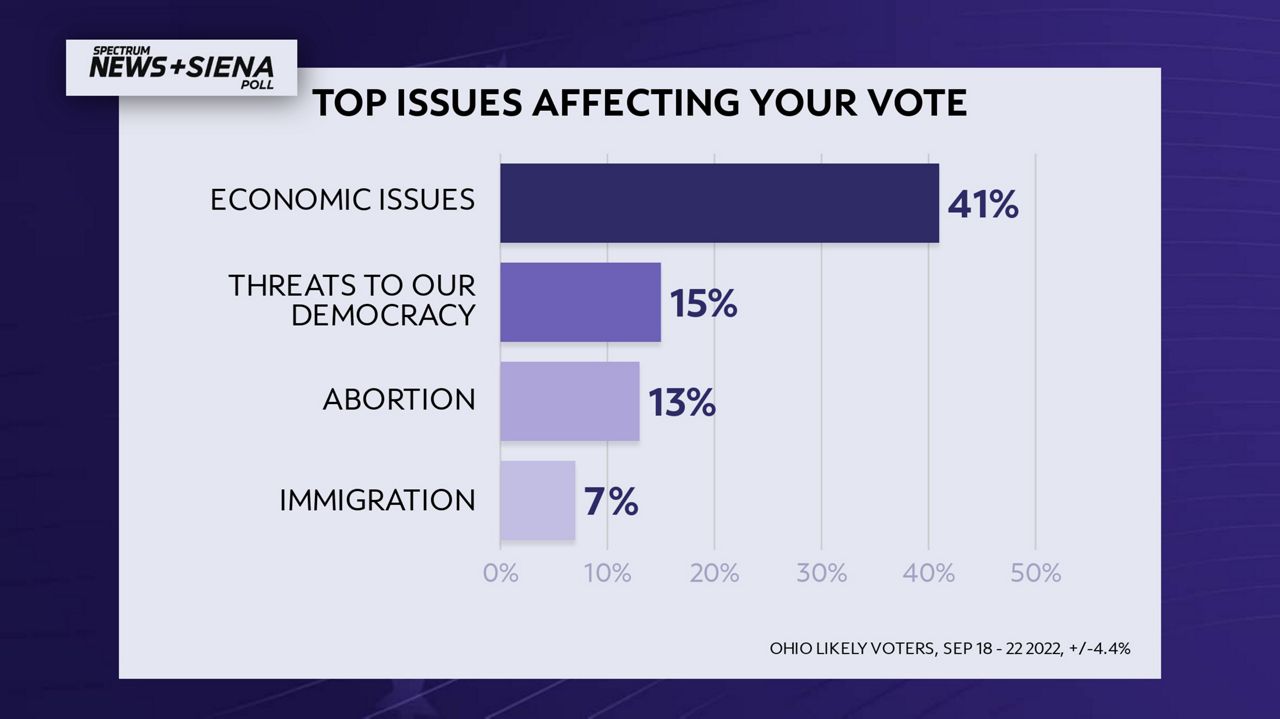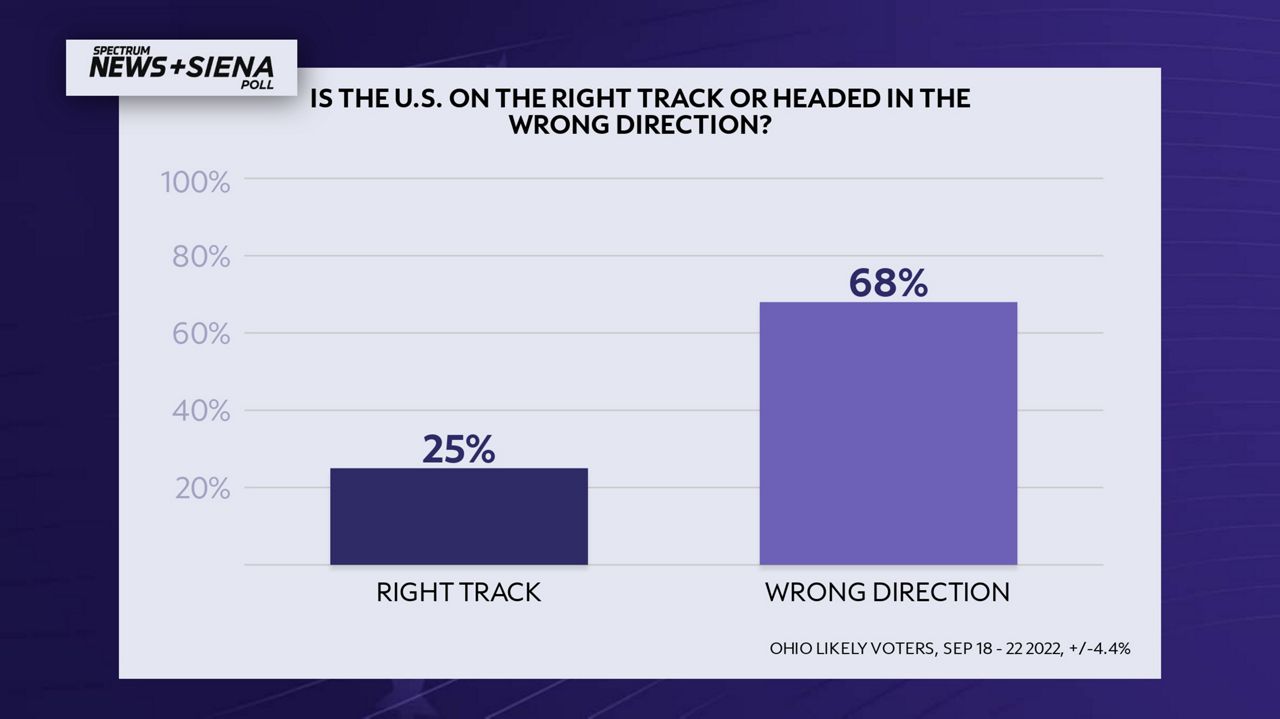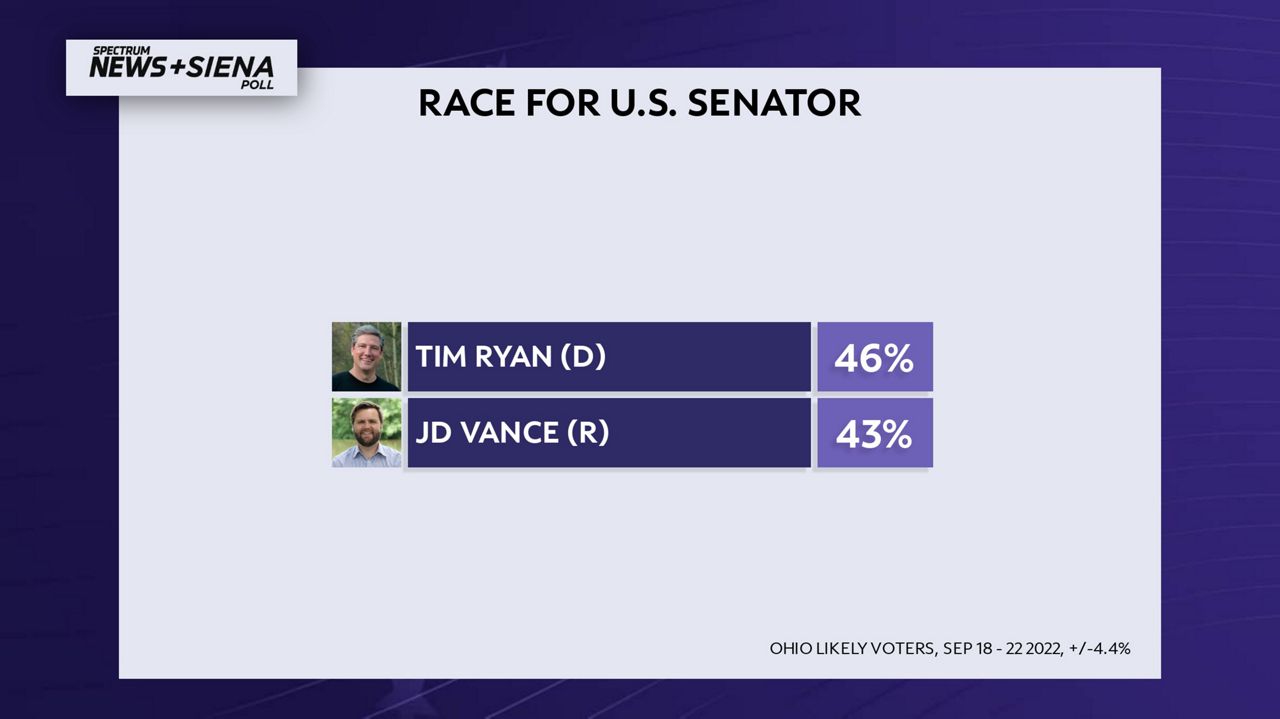OHIO — In this year’s midterm elections, Ohio voters face decisions about myriad issues having an immediate impact on their daily lives. Among those issues are rising costs for essentials like food, rent and gasoline, which Americans have been grappling with for at least the past year.
According to the Bureau of Labor Statistics,inflation hit a high last summer the likes of which the nation hasn’t experienced in four decades.
In the largest leap since 1980, Russia’s invasion of Ukraine pushed fuel costs up 42% over the past year, according to the Associated Press.
Concerns over the cost-of-living spike were clearly articulated in responses to a recent Spectrum News/Siena College Research Institute poll conducted in mid-September.
The poll was conducted Sept. 18-22, and has a 4.4% margin-of-error.
The poll included 642 Ohioans who are likely voters who were asked to weigh in on issues and share political views, considering everything from abortion and recreational marijuana to gun policies and redistricting.
Pollsters asked the respondents to choose from the following list the top two most important issues that will affect their voting decisions in the November midterm elections:
- Abortion
- National gun policies
- Threats to our democracy
- Economic issues, including inflation and cost of living
- Crime
- Climate change
- Immigration
- Racial justice
- Don’t know/refused
Inflation and cost-of-living beat all other issues affecting voting decisions, earning both of the top two spots for most respondents, with the economy most important for 41% and second most important for 21%, totaling 62% of respondents.
About 30% of respondents named threats to our democracy in third position followed by immigration at 21%, abortion at 20%, national gun policies at 18%, crime at 15%, racial justice at 13%, and climate change at 12%.
A small group, 9%, of respondents didn’t know or declined to respond.
The poll revealed that with 75%, more Republican respondents ranked the economy highest than Independents at 64% and Democrats at 42%. At 66%, men rated the economy most important with women ranking it at the top at 59%.
The issue was of highest importance to respondents in the 18-to-34 age bracket, where it averaged 70%.
Meanwhile, 60% of Black voters, and 62% of white voters ranked the economy as most important in impacting voting decisions as well.







